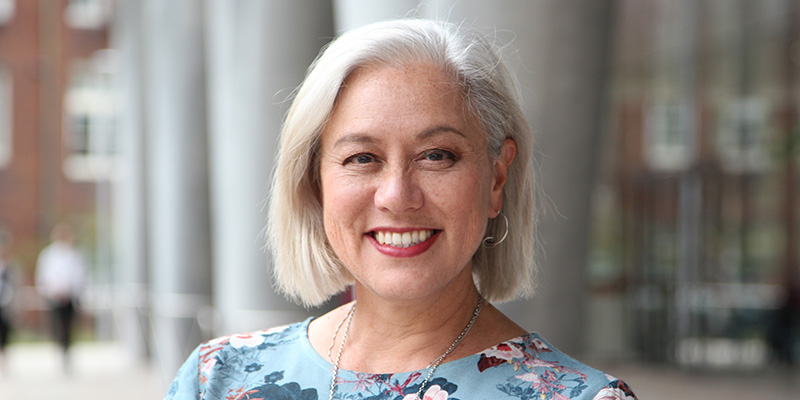Dr Jean-Frédéric Levesque reflects on the important role of primary care in the collaborative response to COVID-19. In particular, how this has strengthened the synergy between primary and tertiary care to help drive patient-centred healthcare in NSW.
As we have seen through this latest Omicron wave of COVID-19, an integrated approach across the health system is vital for better patient experiences and outcomes.
Over the last two months, the work between NSW Health and primary care has intensified. As the pandemic shifted to a high volume of cases, with less severe symptoms (in part, due to high vaccination rates), we moved into a situation where many people could self-manage their COVID-19 at home.
It is clear that, while the state and territory governments run public health services and the Commonwealth manages primary care, we cannot think about either in isolation.
There is a synergy between the sectors that is important. For patients, there are not two systems – it is just healthcare – and the pandemic has given us an opportunity to strengthen this synergy and integration of care.
Working together with primary care
To provide truly consumer-centred care, innovation needs to follow the patient pathway; and, very often, that starts with primary care clinicians who have a unique set of skills and experiences.
To develop meaningful clinical guidance throughout COVID-19, working with primary care has been crucial. For patients to self-manage, GPs are often the first port of call for advice and support. As such, clinical guidance was informed by, and developed with, primary care. Their advice was pivotal in identifying gaps in pathways, and ensuring criteria helped identify people at high risk.
The Agency for Clinical Innovation (ACI) GP Advisory Group supported the development of targeted vaccination approaches for the Delta strategy, bringing rich understanding and experience of the community's feelings and barriers to discussions. We have also worked closely with primary care clinicians to develop and disseminate information and support to GPs about caring for people with COVID-19. This includes:
- clinical guidance on caring for people in the community with COVID-19
- patient fact sheets about self-managing with COVID at home
- Model of care for the use of anti-SARS CoV-2 monoclonal antibodies and antivirals for people with mild to moderate COVID-19.
This partnership has resulted in a close working relationship with HealthPathways, which has ensured consistency of clinical guidance across the health sectors.
Our shared decision making resource – Finding your way – was another important initiative developed with Aboriginal communities and health workers to support informed discussions between Aboriginal people and their doctor about COVID-19 vaccines.
The ACI recognises, value and seeks the input and involvement of primary care as this makes our innovation more impactful for patients.
Importantly, we work closely with stakeholders across NSW Health who recognise and support this important partnership with primary care. This includes a strong relationship with System Performance Support who lead the implementation of integrated care, the COVID-19 Care in the Community team and Health and Social Policy Branch who convene the Primary Care Community of Practice.
Our network driven approach
Our approach is driven by the ACI’s Primary Healthcare Institute and engagement with primary care across our clinical networks and statewide programs, such as virtual care.
For the clinical specialities represented across the ACI’s networks (from pain management and rehabilitation to wound management, emergency care, and more), it is crucial to engage and work with primary care to ensure optimal outcomes for patients at each stage of their care.
The Primary Healthcare Institute facilitates a GP Advisory Group – a high-level reference group that provides expert general practice advice to the ACI’s clinical networks to advance key programs and projects that support the integration of healthcare.
Working with primary care provides opportunities to advance truly patient-centred, integrated and sustainable healthcare.
We have built on these relationships and strengthened our ways of working together throughout the pandemic. We will continue to embed this into our work across the ACI and the health system.
I hope you enjoy this issue of Clinician Connect. You can read more about our partnership with primary care in our guest editorial by GP, Dr Walid Jammal.
Farewell to Dr Tracey Tay
Last month, the ACI farewelled Dr Tracey Tay who has moved on from her role as Clinical Executive Director, CATALYST.
Tracey had been with the ACI for many years and was a much-loved member of staff. Her passion for ensuring our clinical information is useful for clinicians, developing enduring partnerships with stakeholders, advocating for health worker wellbeing, and championing genuine ‘clinical engagement’ has been a great benefit to all of us and the people we serve.
Tracey provided exceptional leadership to the CATALYST directorate, and in the ACI's Executive team, including acting as Chief Executive when required. I know I speak for everyone at the ACI when I say that we will miss working with Tracey.
I would like to thank Tracey for her excellent contribution to the ACI over the years and wish her every success as Chief Health Officer at Calvary.

“I have so many fond memories and lessons from my time at ACI. I have learnt that the more people you connect with, the more skills you have access to and can learn. Conversely, the more generous you are with your time and skills (however meagre you think they are), the more people you connect with; and so the virtuous cycle goes," reflects Tracey Tay.
“I am so proud to have been part of an organisation that has matured over the years to be able to support the health system response to COVID in an extremely practical and direct way during one of the most challenging times in modern history."